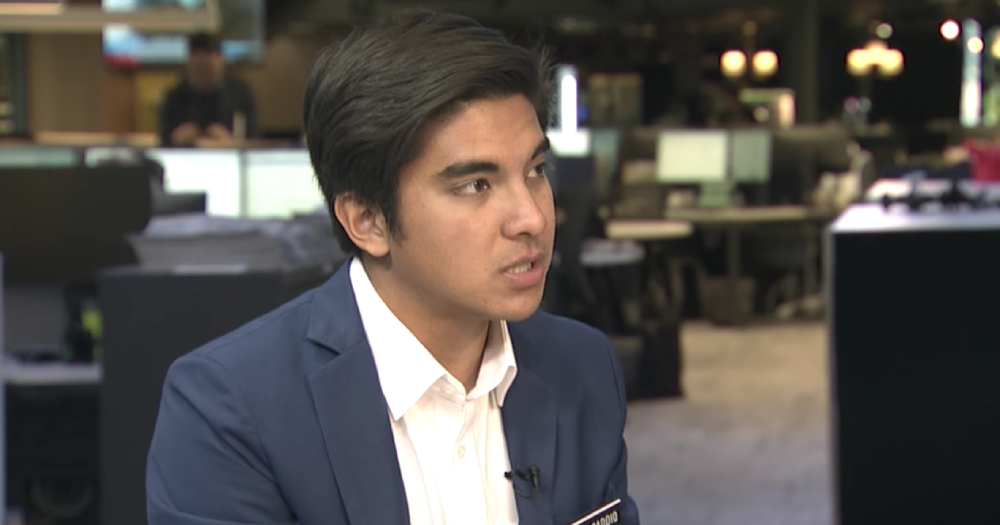Malaysia's Youth and Sports Minister Syed Saddiq Syed Abdul Rahman said he does not believe former Malaysian prime minister Najib Razak would be able to make a quick political comeback.
He made this known in an interview with South China Morning Post (SCMP) on Jan. 25.
Unlikely for Najib to make political comeback
The 25-year-old, who is the youngest Cabinet minister in Malaysia, was asked by SCMP's Bhavan Jaipragas if the current administration is worried that Najib could gain political support again, considering a campaign around him has already started.
This is because the 1MDB (1Malaysia Development Berhad) scandal is too big for the Malaysian people to turn a blind eye to.
"People say he looks unperturbed -- the very same thing which people said prior to election, which led to the confidence of a lot of BN (Barisan Nasional)... and their supporters.
They say Datuk Seri Najib is very confident that WSJ (Wall Street Journal) will not pose a risk to him, that the 1MDB scandal will be ignored by the Malaysian people, and they will be elected with a two-third majority.
But yet, the very same perception which crumbled post-election, I believe, will also be the very same thing which will happen now.
I think the evidence is clear. This is not just a localised case. Other countries are with us. At the same time, it's is a global money-laundering scandal, the biggest one in the world.
I've a strong feeling that justice will be served."
Saddiq also commented on a number of issues, such as the state of its democracy and the country's bilateral ties with China.
Here's what he said.
Media is more free now in New Malaysia
When asked about the bickering among ministers regarding the country's prime minister succession, and the criticisms he faced after he publicly called for fellow minister P. Waytha Moorthy to resign, Saddiq said such public disagreement among ministers is a sign of Malaysia's new democracy.
"This is a new government, and with a new government comes a new practice, where we air out our opinions, we can agree to disagree.
On top of that, when the media is freed up, the media embraces the new democratic space, therefore we see a lot more disagreements or bickering being aired in the open."
He said such bickering happened before with the previous administration, but was not aired out in public due to the tight media control at that time.
"Things which existed before but due to media monopoly, due to strict control by one party which is UMNO. Those things were not aired.
But in New Malaysia, if this happens, I believe this is a symbol of a new democracy. I believe this is progressive for this new Malaysia, because in the end, we don't have an overarching power.
There are sufficient checks and balances within that democracy.
And I think that's a signal of the way forward."
Malaysia-China ties
Saddiq, echoing his government's stance on China, also said that while Malaysia would like to make friends with other countries, especially a "global superpower" like China, bilateral deals must be negotiated well and be made "justly and fairly".
"As long as we treat each other as equals, not as inferior or superior, I believe we will be able to move forward quite well.
The Prime Minister has been very keen on ensuring that ties with China not just remain, but continuously improve and is further enhanced."
Should sports be mixed with politics?
Saddiq also responded to criticisms Malaysia faced recently over its ban of Israeli athletes to attend a qualifying event for the Tokyo 2020 Paralympics.
He said the Malaysian government feels "passionately in defence of their Palestinian brothers and sisters".
"It's key that we speak up for those who are voiceless. And the stance not to accept Israeli athletes into Malaysia is one of it.
Israel has enjoyed the support of many countries, while the recognition of Palestine by many countries is almost impossible. And those who recognise, always gets punished by Western forces."
He went on to elaborate further on why he thinks Palestine has no voice in the international community.
"When we want to censure Israel through the United Nations -- a legitimate route -- the United States will place their veto.
It has been the 47th time.
And when there are those who speak up, their development aid gets taken back.
For example, Donald Trump took back more than US$200 million of development aid from Palestine and other countries who decide to speak up against the Israeli oppression.
Countries deserve the right to recourse and to maintain their stance.
I believe for this issue, the Malaysian government, must stand strongly with our Palestinian brothers and sisters to show that we oppose the actions of the Netanyahu government who continues to oppress the Palestinian people and ferment a situation where Palestine remains the biggest open-air prison in the world."
When pushed to answer if Malaysia's stance is against the Olympic spirit, Saddiq said this is "a question of humanity".
"The Olympic Counsel (OC) has boycotted some countries or left them out, due to human right abuses and humanitarian courses.
For example in South Africa, under the apartheid regime, they were precluded from the Olympics, and there were strong sanctions by the international community.
I would say that apartheid in South Africa is less severe than the oppression (that is) done in Palestine today."
You can watch his interview here:
Top image via SCMP/FB
If you like what you read, follow us on Facebook, Instagram, Twitter and Telegram to get the latest updates.
